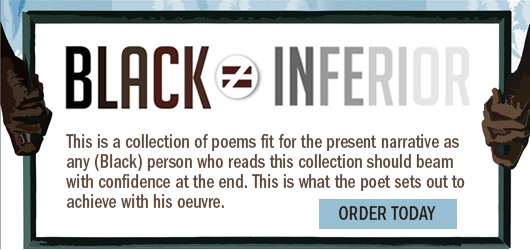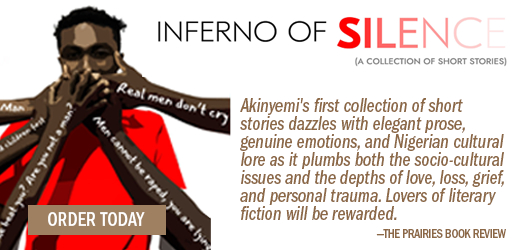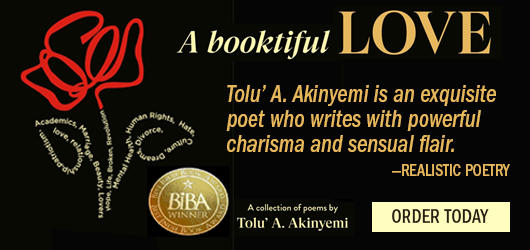Black is Not a Synonym for an Inferior

“Poetry is nearer to vital truth than history.”
Though this quote is attributed to Plato, it has held true across millennia as people turn to the art of poetry for comfort, for catharsis, and even as an act of resistance. Poetry sets itself apart from other forms of the written word by challenging its authors to distill rather than embellish. Those who choose to rise to this challenge carve beauty from brevity, and know that volumes can be spoken even in hollow spaces on the page.
In a year in which “unprecedented” has somehow come to, in itself, be a precedent, can there be any other response than poetry? For award-winning author and poet Tolu’ A. Akinyemi, the answer is what he calls his “legacy work:” Black ≠ Inferior, a collection focused on empowering the Black community amidst ongoing racial injustice and oppression.
Unable to pass up the opportunity to get a peek into the mind of a renowned—and rising—poetic talent, we reached out to Tolu’ with a few questions. We hope you find his answers as illuminating as we did.
You have worked in a variety of disciplines and have expertise in a plethora of subjects, from working as a career coach to helping investment banks and similar institutions as a financial crime consultant. What drew you to poetry, and what keeps you coming back?
I have always been drawn to the written word from a very young age. I take absolute delight in the power of the written word, and poetry gives me raw power to use short bursts of words to convey a message. Poetry and poets aren’t given the recognition they deserve; however, the narrative has been changing very recently. A poem can paint a thousand images and convey deep emotions, which makes poetry very dear to me.
Black ≠ Inferior is your latest collection, just released on New Year’s Day. It examines and responds to a lot of issues that rattled the world throughout 2020, including the Black Lives Matter movement, the Covid-19 pandemic, and ongoing issues of racial injustice and inequality. Is there a moment in particular you can point to that inspired your decision to write and share this collection?
Black ≠ Inferior is one of two poetry collections I released on New Year’s Day, the other being Never Marry a Writer. After the death of George Floyd Jr., his death really felt like a personal loss. And with all the cries of racial inequality and injustice all around the world, that birthed this collection, which I refer to as my legacy work.
There were so many emotions spilling at the time, and I knew there was a story that needed to be told. Also, I felt an intense urge to write a book that could serve as a mantra for the Black community that has been marginalised and oppressed for a long time.
You’ve written several collections of poetry, but are also a sought-after speaker and spoken word performer at renowned writing and poetry events. Do you feel hearing poetry read aloud is an important part of the experience for an audience? Why or why not?
I believe that spoken word poetry is a fundamental aspect of poetry. It’s been a vital part of my literary journey and I love spoken word poetry because of the sense of community it forges. Also, for some, just hearing their favourite poet read out their work is an unforgettable experience which might not always come often.
Hence, poetry readings are very fundamental because of the power in the spoken word and the ability to connect with the audience using language as a tool.
What do you hope readers will take from Black ≠ Inferior, and how do you hope it will transform their mindsets going into 2021?
I hope it will resonate with the readers that ‘Black is not a synonym for an inferior,’ and I hope we see a reduction in toxic conversations around race relations this year and going forward.
For the Black community, I hope they will connect with this body of work and find a mantra for now and the future in this collection.
Finally, do you have any plans for your next project you can share with us?
My writing process happens spontaneously, hence there is nothing planned at the moment except for flashes of what I would like to write about next, considering I just released two books. However, I have plans to write a children’s book and a poetry collection on the theme of mental health in the near future.
However, keep your eyes peeled, as a new book might just emerge from nowhere.
Barbara Hodge



